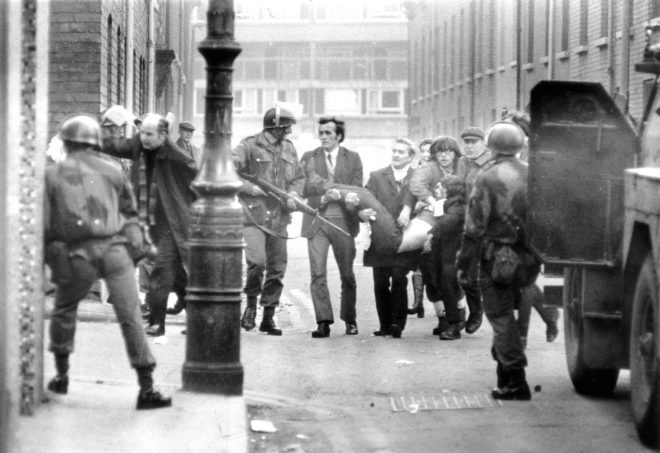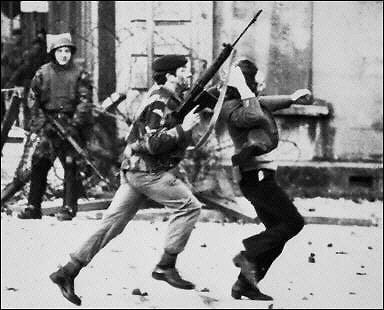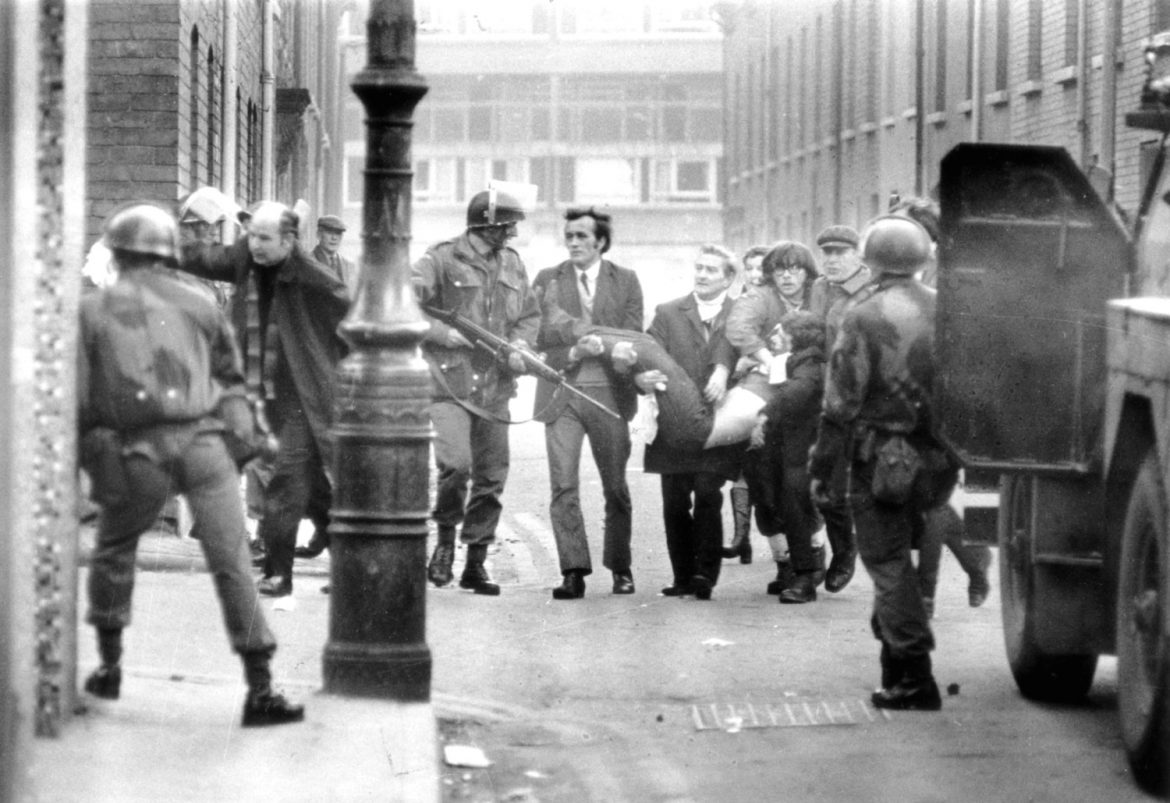 THE British Ministry of Defence has confirmed it will cover the legal costs of any soldier facing criminal charges over Bloody Sunday.
THE British Ministry of Defence has confirmed it will cover the legal costs of any soldier facing criminal charges over Bloody Sunday.
Eighteen ex-paratroopers have been reported to the Public Prosecution Service over the 1972 killings.
The PPS will announce tomorrow, Thursday, March 14, whether the soldiers will face charges.
It is understood the PPS is to brief relatives of those murdered on Bloody Sunday at a hotel in Derry on Thursday morning before briefing the media on its deicision.
In a letter to army veterans, the MoD said soldiers are represented “entirely at the Ministry of Defence’s expense”.
One British broadsheet newspaper has already speculated that four British soldiers are to be charged with murder.
Thirteen people were shot dead in Derry when members of the Parachute Regiment opened fire on civilians in 1972.
The MoD letter was issued to army veterans this week.
It is signed by the Defence Secretary Gavin Williamson, and lays out arrangements for soldiers who “are subject to investigations by the Police Service of Northern Ireland”, or “who may be required to participate in other legal processes, such as inquests and public inquiries”.
The MOD letter said soldiers are “represented by independent firms of solicitors, instructed by veterans themselves, in whose sole interest they act.
“This has been the case since the individuals were first regarded as suspects by the Police Service of Northern Ireland and will continue – without time limit or cap on expenditure – until all aspects of the investigation and subsequent legal process are complete.”
The letter, seen by the BBC, said a dedicated team has been set up looking at ways to provide appropriate legal protection to serving and former members of the armed forces “where they currently face repeated investigations and potential prosecution following events that happened many years ago”.
 It added: “The Ministry of Defence has ensured that all veterans under investigation in Bloody Sunday are aware of the support available, either via their legal representatives or directly.”
It added: “The Ministry of Defence has ensured that all veterans under investigation in Bloody Sunday are aware of the support available, either via their legal representatives or directly.”






